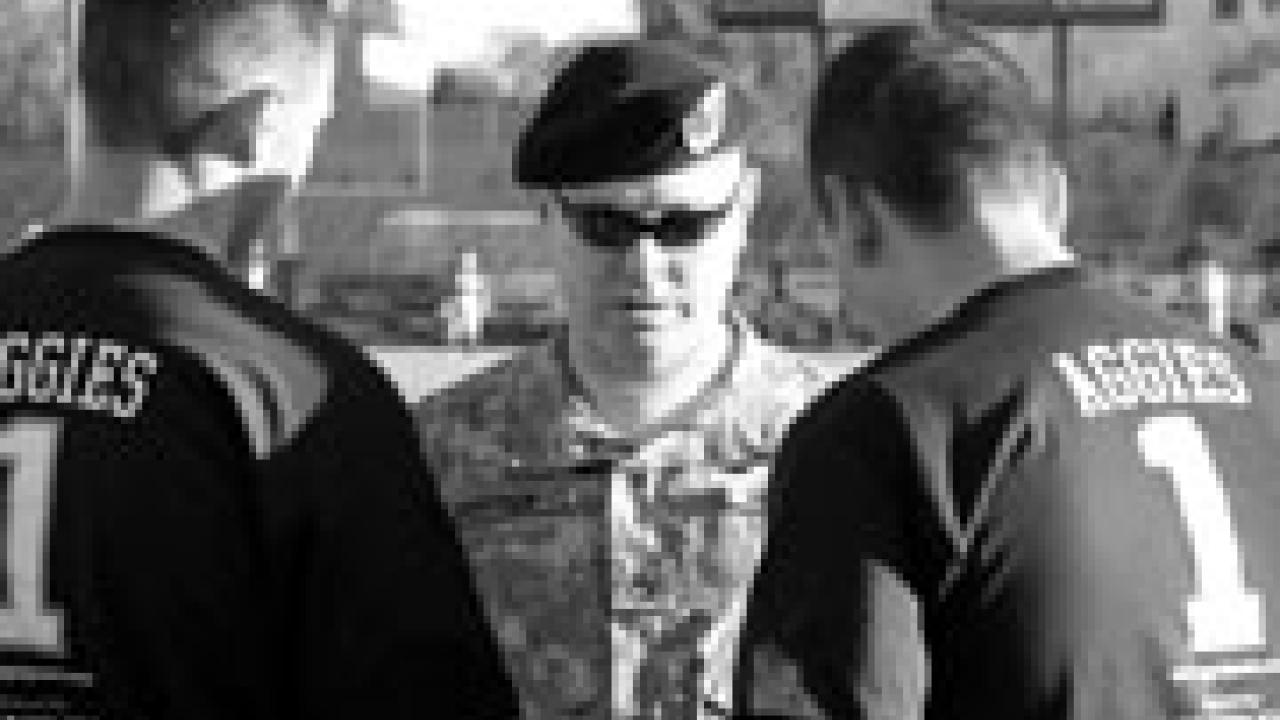At a time when U.S. troops are engaged in combat, some parents, students and others are concerned about military recruitment on college campuses.
"We recruit on campus because the Army is looking for qualified individuals," said Army Staff Sgt. Elmer Foster, whose recruitment territory includes UC Davis. "Just as UC Davis looks to attract the best minds, the Army has the same goal."
The armed forces have recruited on campus for about 10 years through booths in the Memorial Union and at career fairs, says Christine Dito, manager of career recruitment for the Internship and Career Center.
"Our job is to help students find career-track positions," she said. "We don't discriminate in who comes to campus to recruit. The armed services may fill a niche that some students may be interested in."
While UC Davis has the largest Reserve Officer Training Corps program in the state with enrollment of about 120, not all students on campus are pleased about armed services recruiting on campus. Student protests against the Iraq war, for example, have called for a ban on military recruitment on campus.
Foster, who also attends home football games, said four UC Davis students have enlisted in the Army in the last two months. But he emphasized that he is not on campus to take students out of college.
"We offer reserve positions as well as full-time enlistment, depending on the needs and desires of the student," added Foster, who has served in the Army for nearly 18 years. "We're here to offer a viable alternative and students that enlist with us can come out ahead in terms of funding and experience."
The Army offers more than 150 specific careers or jobs, including accounting, health care, military police, even music — the infantry is only one of those.
Students get paid while serving in the reserves, and recruits with college degrees entering the reserves or full-time service have accelerated promotion and pay rates, Foster said. The Army also offers a loan repayment program for those students who enlist — from $15,000 to $65,000 after a minimum of three years' service.
While Foster acknowledged that the Army is not for everyone, he said it does offer individuals the chance to be part of a team, and recruits come out stronger, and more reliable — attributes that can benefit a person in every aspect of life.
On Nov. 8, San Francisco voters approved an initiative opposing the presence of military recruiters at public high schools and colleges. However, it would not ban the armed forces from seeking enlistees at city campuses, since that would put schools at risk of losing federal funding.
Instead, Proposition I encourages city officials and university administrators to exclude recruiters, and create scholarships and training programs that would reduce the military's appeal to young adults.
A pending U.S. Supreme Court case could have a profound effect on the ability of the nation's military recruiters to contact college students for enlistment or postgraduate employment. In May, the court agreed to hear an appeal from the 3rd District Court of Appeals on Rumsfeld v. Forum for Academic and Institutional Rights. The decision ruled against the current law that allows military recruiters to contact college students. The case begins Dec. 6.
Trina Wood, a writer who lives in Davis, is a regular contributor to UC Davis publications.
Media Resources
Clifton B. Parker, Dateline, (530) 752-1932, cparker@ucdavis.edu
